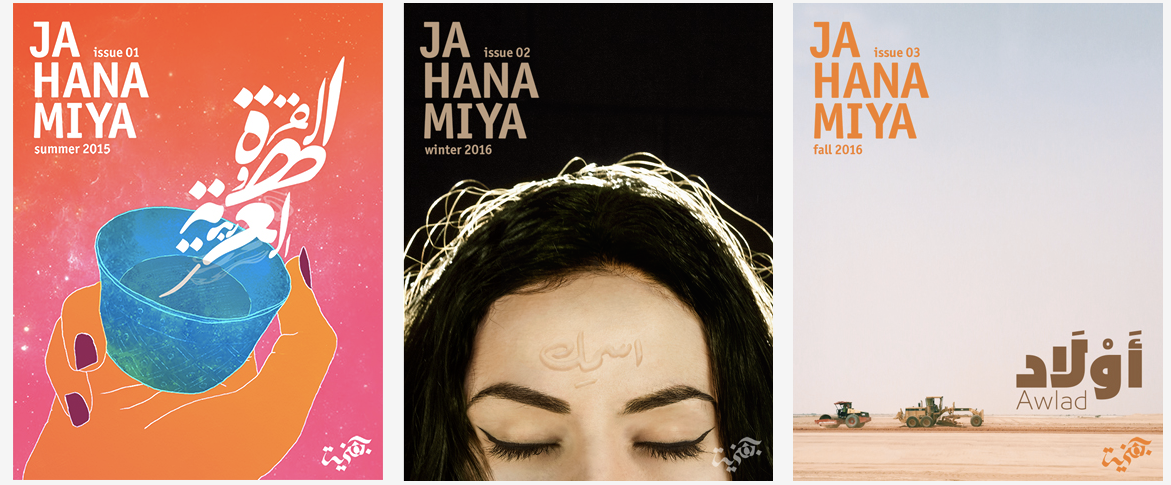by NATASHA BURGE
 Past issues of Jahanamiya
Past issues of Jahanamiya
‘I want to counter Western stereotypes about Middle Eastern women, while highlighting issues for Saudis that aren’t spoken about in Saudi society.’
Ahd Niazy tells me she is having a tough week; it’s her final semester at Emory University, where she is a double major in Creative Writing and Interdisciplinary Studies in Culture and Society, and the senior crunch is well underway. As we speak via FaceTime, she is sitting in a computer room on campus and in the background I occasionally see flustered students walk by.
Ahd is the creator and editor-in-chief of Jahanamiya, Saudi Arabia’s first feminist literary magazine. In just three issues, the magazine has pushed the boundaries of the Saudi literary establishment with startlingly intimate pieces of fiction, essay, and poetry.
Jahanamiya denotes the bougainvillea plant in Arabic?—?a carefully chosen word. The bougainvillea grows easily in Saudi Arabia, can look after itself (it hardly needs any tending), and is very hardy and colorful?—?so it adds something beautiful and vibrant to the world, Ahd explains to me. It’s a metaphor for the voices of Saudi women, she adds.
Since 2011, when Raja Alem became the first woman to win the International Prize for Arabic Fiction for her book The Dove’s Necklace, the international literary community has become increasingly interested in Saudi writers. With Jahanamiya, Ahd is bringing the diverse voices of Saudi women into this spotlight.
In just three issues, the magazine has pushed the boundaries of the Saudi literary establishment with startlingly intimate pieces of fiction, essay, and poetry.
Even through my computer screen, it is clear that Ahd is a warm and thoughtful speaker who brims with a contagious enthusiasm. After spending many of her childhood years in Alabama, and the last four years studying in Georgia, she laughingly refers to herself as a “Southern Saudi girl.”
We find ourselves careening off on multiple tangents during our conversation. We laugh at the mirrored image we make?—?an American in Saudi Arabia interviewing a Saudi in America. We’re both adult-third-culture-kids so we also spend a lot of time exploring the complex notions of “home” we wrestle with.
Ahd was born in Jeddah, Saudi Arabia, but her family moved to Birmingham, Alabama when she was only a few months old. After spending her formative years there, her family moved back to Jeddah when she was 11. Ahd recalls this return to Saudi Arabia as a pivotal event in her life.
“It was a hard time because my father wanted my younger sister and I to get acclimated to Saudi culture very quickly. He wanted us to completely shift and that wasn’t really possible for me,” she tells me.
The Establishment for more
